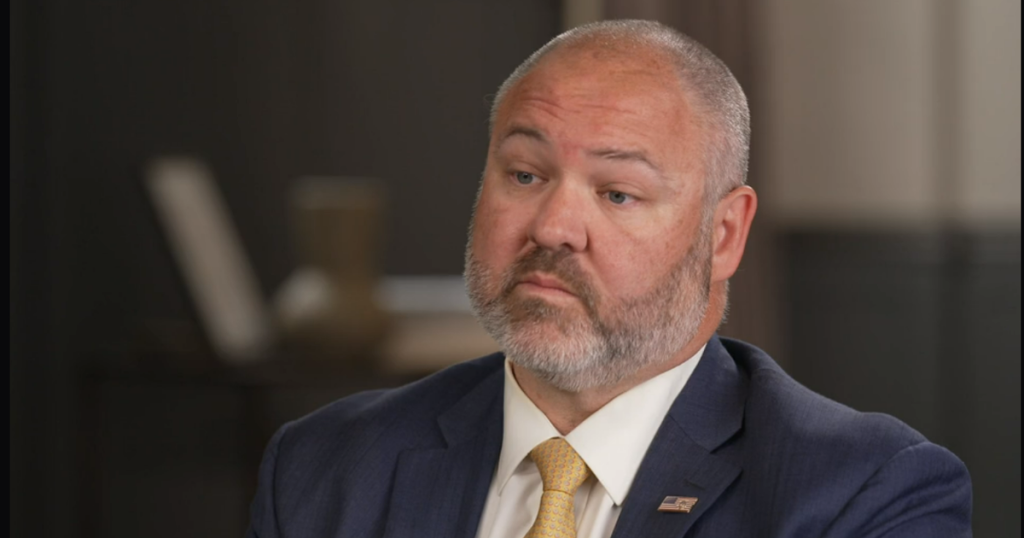In a swift turn of events, just two days after his appointment, Gary Shapley has been relieved of his duties as interim IRS commissioner. His short tenure was marred by controversy, notably involving billionaire Elon Musk, who had initially supported Shapley’s ascension. The internal struggle led Treasury Secretary Scott Bessent to voice significant concerns about Shapley’s role, ultimately resulting in his departure from the position.
| Article Subheadings |
|---|
| 1) The Rise and Fall of Gary Shapley |
| 2) Elon Musk’s Controversial Influence |
| 3) Internal Dissent Within the Treasury |
| 4) The Legacy of Gary Shapley |
| 5) Future Implications for the IRS and Governance |
The Rise and Fall of Gary Shapley
Gary Shapley, a seasoned professional with extensive experience in the IRS, was appointed interim commissioner as part of a transition period for the government agency. His short time in the position made headlines not just for its brevity, but also for the controversies surrounding it. After taking over, Shapley found himself at the center of an internal power struggle, raising questions about the environment within the IRS and the leadership dynamics at play. He had been instrumental in whistleblowing regarding the Hunter Biden investigation, which likely influenced both his initial appointment and the challenges he faced. This situation reflects the precarious nature of government appointments, especially in politically charged environments.
Elon Musk’s Controversial Influence
The controversy surrounding Gary Shapley’s appointment is closely tied to the involvement of billionaire entrepreneur Elon Musk. Sources have indicated that Musk played a significant role in advocating for Shapley to take the helm of the IRS, likely due to his previous criticisms of alleged political interference in the Hunter Biden tax probe. Musk’s influence extended to negotiating behind the scenes, which led to tensions with Treasury Secretary Scott Bessent. This situation brings to light broader questions about the intersection of politics, corporate influence, and governmental appointments, as individuals with substantial resources seek to shape regulatory agencies to align with their viewpoints or interests.
Internal Dissent Within the Treasury
The backlash against Shapley’s appointment didn’t simply come from external sources but originated within the Treasury Department itself. Deputy Treasury Secretary Michael Faulkender expressed concerns about Shapley’s qualifications and the manner in which he was installed. Bessent, siding with Faulkender, sought to reverse Shapley’s appointment, claiming that trust needed to be restored within the IRS. This internal discord emphasizes challenges that can arise when appointments are perceived as political, undermining the stability and effectiveness of leadership in crucial governmental departments. Such divisions illustrate the complexity of managing public institutions and the importance of consensus to operate efficiently.
The Legacy of Gary Shapley
Gary Shapley’s time at the IRS and his role in the Hunter Biden investigation has cemented a controversial legacy. He initially gained recognition for his whistleblower efforts, which included testifying before Congress about alleged interference in the investigation. After speaking out, Shapley’s professional trajectory seemed promising; however, the recent upheaval regarding his temporary leadership position reflects the difficulties faced by whistleblowers in governmental roles. His situation highlights not only the politics of his undoing but also the complicated nature of advocating for reforms within established systems that face intense scrutiny from all sides.
Future Implications for the IRS and Governance
The swift termination of Shapley’s role at the IRS could have far-reaching implications not only for the agency but also for governance practices in the U.S. As the Treasury Department works to restore confidence in its leadership and practices, the ripple effects of Shapley’s controversies will likely prompt discussions about the qualifications and selection processes for key positions within bureaucracies. This scenario raises essential questions about the future leadership of the IRS, as it seeks to navigate the delicate balance of public trust, political influences, and effective governance moving forward. Furthermore, it reinforces a critical observation in contemporary politics: how appointments can be perceived through a partisan lens, impacting their longevity and effectiveness.
| No. | Key Points |
|---|---|
| 1 | Gary Shapley was appointed interim IRS commissioner but lasted only 48 hours. |
| 2 | Elon Musk’s influence played a critical role in Shapley’s initial appointment. |
| 3 | Internal dissent within the Treasury contributed to Shapley’s ouster. |
| 4 | Shapley’s legacy is tied to his whistleblower role in the Hunter Biden investigation. |
| 5 | The incident raises wider questions about political influence on governmental appointments. |
Summary
The abrupt departure of Gary Shapley as interim IRS commissioner underscores the complexities of political appointments within governmental agencies. His brief tenure, marred by internal conflict and external influence, highlights the need for stability and trust in leadership roles that are crucial for the functioning of important institutions such as the IRS. As the government navigates these turbulent waters, the implications for future leadership and governance practices will be closely monitored, setting stages for potential reforms that address both the challenges identified and the lessons learned from this incident.
Frequently Asked Questions
Question: What led to Gary Shapley’s ouster from the IRS?
Gary Shapley was ousted from his role as interim IRS commissioner due to internal conflicts in the Treasury Department, primarily driven by concerns from Treasury Secretary Scott Bessent and Deputy Secretary Michael Faulkender regarding his qualifications and the manner of his appointment with backing from Elon Musk.
Question: What role did Elon Musk play in Shapley’s appointment?
Elon Musk was a significant advocate for Gary Shapley’s appointment as interim IRS commissioner, although his involvement sparked controversy and was met with resistance within the Treasury Department, indicating the tension between political influence and bureaucratic independence.
Question: How does this incident reflect on the future of the IRS?
The incident involving Gary Shapley underscores the challenges of leadership transitions in politically charged environments, raising questions about the IRS’s need for stable leadership and the potential for reforms to improve trust and governance within the agency.
